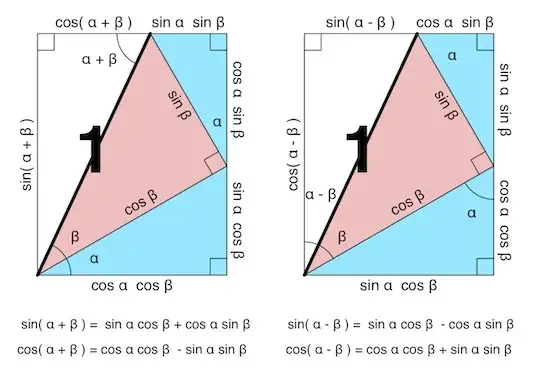I am trying to simplify the expression $2\cos^{2}6x-1$.
The book got the answer of $\cos 12 x$ by doing $2\cos^{2}6x-1 = \cos2\left(6x\right) = \cos12x$
It said the double angle is $12x$. I don't know how $2\cos^{2}6x-1$ got to $\cos2\left(6x\right)$, can anyone explain how this works?
It said it used cosine of double-angle formula, but I am not sure how it got the answer.
